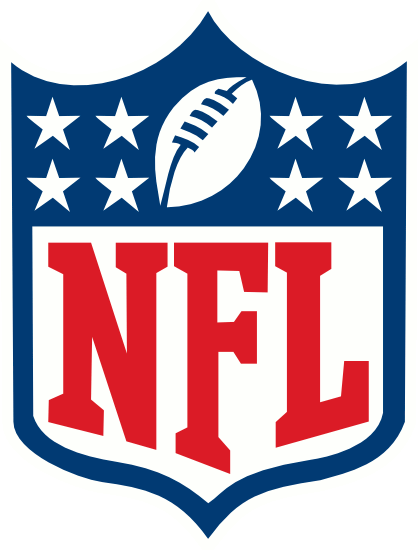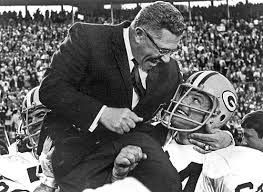
It has become an American national holiday. On the Sunday when the Super Bowl is played, the country stops. Families and friends collect around televisions armed with beer, brats, bravado and Buffalo wings to experience the ultimate water-cooler event.
As evidenced by the 2011 game on February 7, 2011, when the Green Bay Packers defeated the Pittsburgh Steelers 31-25 to win Super Bowl XLV, the game is bigger than the sport itself. On television, nothing eclipses the power of the Super Bowl. An estimated television audience of 111 million tuned into that game, making it the most watched program in history.
“If Jesus Christ were alive today,” minister Norman Vincent Peale said in 1974, “he’d be (watching) the Super Bowl.”
So how did this game come to be called the Super Bowl? The legend began auspiciously in 1959 when Lamar Hunt was instrumental in forming a competitive football league to the long-existing NFL.
On the strength of his great inherited oil wealth, Hunt applied for an NFL expansion franchise in 1959, but was turned down. The thinking among NFL executives was that the league must be careful not to over-saturate the market by expanding too quickly. Hunt also attempted to purchase the NFL’s Chicago Cardinals franchise in 1959 with the intent to move them to Dallas, but was again turned down.
In response, Hunt approached several other businessmen who had also unsuccessfully sought NFL franchises, including fellow Texan and oil man K.S. Bud Adams of Houston, about forming a new football league. The American Football League (AFL) was established in August 1959. The league began play on September 9, 1960, with eight teams — the Boston Patriots, Buffalo Bills, Dallas Texans, Denver Broncos, Houston Oilers, Los Angeles Chargers, New York Titans and Oakland Raiders.
Hunt became owner of the Dallas Texans and hired future Hall-of-Famer, Hank Stram, as the team’s first head coach.
By 1963, the Texans struggled to compete for attendance and interest against the popular Dallas Cowboys, so Hunt re-located the club to Kansas City and the Chiefs were born.
In the meantime, the AFL’s credibility was on the rise. Since the NFL’s inception in 1920, the league fended off several rival leagues before the AFL began play in 1960. The intense competition for players and fans led to serious merger talks between the two leagues beginning in 1966.
From those talks, the idea of an NFL-AFL Championship Game was born but not given an official nickname.
The origin of the Super Bowl name may have had a subconscious lineage back to college.
In 1902, the Tournament of Roses committee decided to enhance the day’s parade festivities by adding a football game – the first post season college-football game ever held. Stanford accepted the invitation to take on the powerhouse University of Michigan, but the West Coast team was flattened 49-0. The lopsided score prompted the Tournament to give up football in favor of Roman-style chariot races. In 1916, football returned to stay and the crowds soon outgrew the stands in tiny Tournament Park. William L. Leishman, the Tournament’s President in 1920, envisioned a stadium similar to the Yale Bowl, the first great modern football stadium, to be built in Pasadena’s Arroyo Seco area. The new stadium hosted its first New Year’s football game in 1923 and soon earned the nickname “The Rose Bowl” in honor of the Rose Parade and the fact the new venue was literally shaped like a bowl that sat over 100,000 revelers.
Exploiting the popularity of the Rose Bowl stadium and the college championship game of the same name, the Orange Bowl and Sugar Bowl football games were created in 1935, followed by the Cotton Bowl in 1937. “Bowl” thus became a standard term and other “bowl games” were created in later years.
So, when the established NFL began to merge with the upstart AFL in 1966, football fans finally got their wish – a showdown between the two league champions, billed as the “NFL-AFL World Championship Game.”
In the book, The Super Bowl: An Official Retrospective, Lamar Hunt recounts the origin of the name he concocted. “There were three super balls given by my wife to our three children at that time, Lamar Jr., Sharon and Clark. It was a highly concentrated rubber ball manufactured by the Wham-O company. You could bounce it off concrete and it would literally bounce over a house. The kids were always talking about these super balls. I think that’s how the name came about.
“In the fall of 1966, in one of our joint committee meetings between the AFL and NFL, we were talking about where we were going to have this championship game. One of the people said, ‘Which game are you talking about?’ I said, ‘Well, you know, the last game after the last game. The final game. The championship game. The Super Bowl.’ The members of the committee – three of us from the AFL and three from the NFL and (commissioner) Pete Rozelle – looked at me, and we all kind of smiled. Thereafter, the committee began to refer to the game as the Super Bowl. It was three or four years before the league officially adopted that name, but the media and public seized on it. Especially when CBS and NBC promoted that first game as Super Sunday.”
Later that summer, Hunt sent a memo to Commissioner Rozelle suggesting that the merged leagues should finally coin a proper phrase for their new championship game. “I have kiddingly called it the Super Bowl,” Hunt wrote, “which obviously can be improved upon.”
Rozelle agreed. The commissioner despised the word “super” because it lacked sophistication. Rozelle, with his background in journalism and public relations, was a stickler on words and grammar. The game, for now, would continue to be called the “AFL-NFL World Championship Game.”
That bulky title didn’t last. People caught wind of Hunt’s name and soon everyone, from media members to players, were calling the title game the Super Bowl. By the end of 1966, network executives were referring to the day of the first game as “Super Sunday.” After Hunt’s Kansas City Chiefs defeated the Buffalo Bills in the AFL Championship Game, the next day’s Kansas City Star headline declared that the Chiefs were “Super Bowl Bound.” In Los Angeles, on the morning of Jan. 15, 1967, an NFL Films crew member could be heard giving a sound cue – “Super Bowl, reel one” – before shooting the first pre-game footage at the Los Angeles Memorial Coliseum.
The first two NFL-AFL Championship games were anything but “super” as the NFL’s 1960s powerhouse Green Bay Packers demolished their AFL counterparts both times (35-10 over the Chiefs in January, 1967, and 33-14 over Oakland in 1968). At the time, some doubted the competitiveness of AFL teams compared with NFL counterparts.
Even Coach Vince Lombardi famously told his players before the first meeting against Kansas City that, “You damn well better not let that Mickey Mouse (American Football) league beat you. It’d be a disgrace, a complete, utter disgrace.”

But that perception changed when the AFL’s New York Jets defeated the Baltimore Colts 16-7 in the third such championship game in January, 1969.
The merger between the leagues became official after the 1969 season and beginning with the 1970 season, the American Football Conference (AFC) and National Football Conference (NFC) were formed with each conference’s winner meeting in what was now officially called the Super Bowl.
Yet few fans noticed as they’d been calling the big game the Super Bowl since the first one was played.
